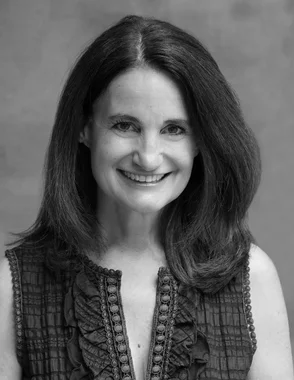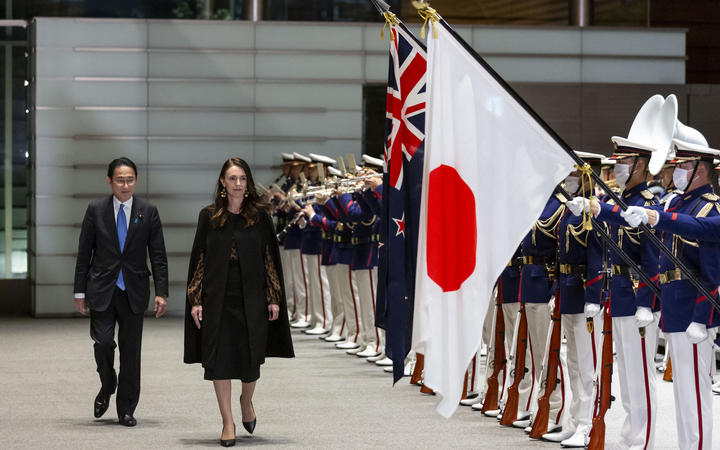Chinese politics and policy expert Elizabeth C. Economy has been described as one of the most important scholars of China in a generation.
In her new book, The World According to China, Dr Economy details China's role in the world and explains Beijing's ambition to reclaim the country's past glory and sit atop a new international system as the global superpower.

Dr Economy tells Jim Mora China wants the rights - without the responsibilities - of global leadership.
“China wants to transform norms and values so that they reflect Chinese preferences, more authoritarian initiatives around things like internet governance, trying to cement them in international institutions like the United Nations.

“When you look for the country to stand up and lead on climate change, for example, or look at China’s behaviour right now with regard to the Russian invasion of Ukraine … you really never see China, frankly speaking, step up when there is an international crisis of any sort.
“Xi Jinping just not that long ago said yeah, we want to do the right thing [for the climate] … but right now, the economy has to be our priority and we are not going sacrifice economic growth, so he made a very clear decision to put clean energy on the backburner as he was confronting a fairly significant slowdown in the Chinese economy.”
Dr Economy envisions Xi’s ambition for transformation in a set of concentric circles, starting with a redrawing of China’s map to include territories it claims belongs to the nation.
“He’s clearly signalled that reunification with Taiwan is one of the items at the top of his agenda, as he puts it one of 14 must-do items essential to his narrative of great rejuvenation of the Chinese nation.
“Beyond that, he wants the United States out as the dominant power in the Indo-Pacific … one of the big changes he calls for is the end of the US alliance systems as [it says] alliances are a construct of the Cold War, they’re anti-China, they’re antagonistic.
“Then I think you get to the … norms and the values. I think that starts with in part the Belt and Road Initiative which began as a hard infrastructure activity programme, basically going to other countries and helping with their infrastructure development … then it moved to a Digital Silk Road.”

China is trying to use the Digital Silk Road to transform norms by exporting its surveillance technology and helping like-minded countries learn how to censor the internet in real-time, Dr Economy says.
In a more subtle expression of influence, Dr Economy says China blocked broadcasts of NBA games and pulled merchandise of the Houston Rockets team after its manager tweeted in support of Hong Kong protests.
“In some ways this is not atypical behaviour for China, they use the market as a source of coercive leverage, but what was different this time was that CCTV, China’s Central Television, came out and said issues related to social stability and sovereignty do not fall within the purview of free speech.
“This is really an extraordinary statement because what it’s signalling is China has the right to control, as it does at home, the speech of people outside the country, using a platform frankly, Twitter, that China doesn’t even allow its own citizens to use.
“We see China now pushing to reform the way human rights are categorised, moving away from notions of individual rights to more state-centric rights.”
Chinese centrality leaves little room for allies’ values and norms, and Dr Economy argues that is radically different to the world order today.
“You now have more and more countries thinking beyond just their own narrow or geographic boundaries to realise that what China is doing, what Russia has already done, is really to threaten very basic norms and understandings of the current international system.
“I think things are changing in some of the large economies, large advanced democracies, moving away from China, moving away to some extent from the idea that the market trumps all and there is no price really not worth paying to be able to engage with China.”

China has stepped into the Pacific because of the vacuum left, she says.
“We here in the United States, I can tell you now, talk a lot more about the Pacific Islands than we ever have before, and that is in large part due to China, but should it be?
“Should it not be that we were already thinking about these issues and thinking about how to do development better with them, to partner with them? How to help them more? Not just waiting for China to scare us into it.”
On the surface, China appeared to be prospering just a few years ago before Covid, but a study from Stanford University finding a significant percentage of urban middle class wanting basic rights, Dr Economy says.
“I think in fact this is an incredible moment for the democracies of the world to step up and I think they can seize the opening that China has provided by revealing in many respects the dark side of the Chinese regime … over the past few years, with the crackdown on Hong Kong ,and the Xinjiang situation, and Covid, and now Russia.
“I think that sends a very clear message about the priorities of the Chinese leadership and I don’t really think those are priorities that are shared by many people globally.”
Elizabeth Economy is a senior fellow, currently on leave, at the Hoover Institute at Stanford University, and a former senior fellow for china studies at the US Council on Foreign Relations, and a foreign senior adviser in the American Department of Commerce, but her opinions are her own.


